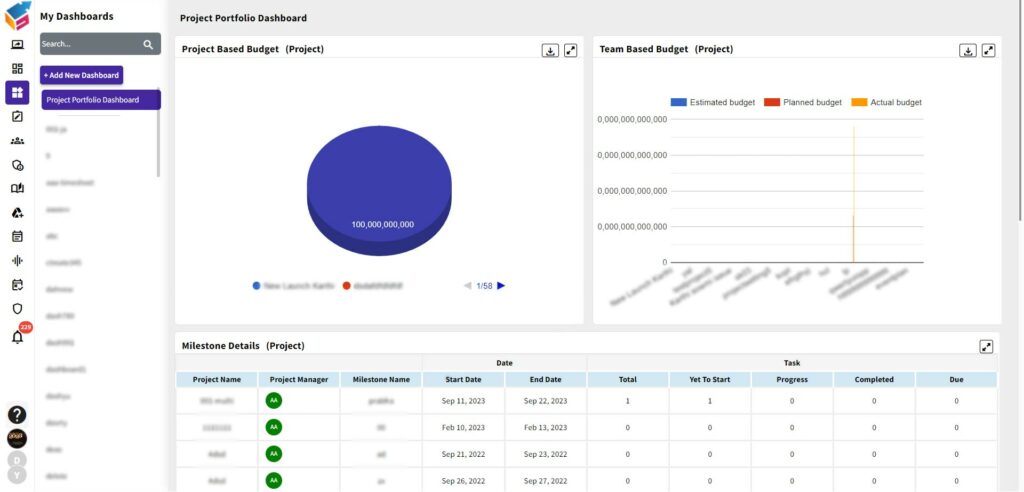Table of Contents
Project management is a complex and multifaceted field that involves planning, organizing, and executing projects to achieve specific goals within a given timeframe and budget. Successful project management requires a thorough understanding of various factors that can impact the project’s outcome, including project assumptions.
Project assumptions are the underlying beliefs and premises that project managers rely on to plan and execute a project. They play a critical role in project management and can significantly impact the project’s success or failure.
In this blog, we will discuss the importance of project assumptions in project management, and why project managers should pay close attention to them throughout the project lifecycle.
What Is a Project Assumption?
A project assumption is an assumption made by the project team or stakeholders about a certain aspect of the project that is true or valid but has not yet been verified or proven.
Assumptions are necessary because projects often have uncertainties and unknowns that cannot be fully addressed at the outset. Assumptions help to establish a common understanding and a basis for decision-making when dealing with uncertain or ambiguous situations.
Examples of project assumptions could include assumptions about the availability of resources, the scope of the project, the technology used, the market demand, the regulatory environment, or any other factor that may affect the project’s success.
It’s important to identify and document project assumptions as they can impact the project plan, schedule, budget management, and risk management strategies. Assumptions should be regularly reviewed and validated throughout the project to ensure that they remain accurate and relevant.
Types of Project Assumptions
There are different types of project assumptions that can be made depending on the nature and scope of the project.
Here are some common types of project assumptions:
- Technical Assumptions: Assumptions related to the availability, functionality, and compatibility of hardware, project software, and other technical resources required for the project.
- Environmental Assumptions: Assumptions related to the physical, social, and economic environment in which the project will take place, including weather conditions, cultural norms, and economic trends.
- Organizational Assumptions: Assumptions related to the structure, culture, and policies of the organization sponsoring or conducting the project, including the availability of resources, decision-making processes, and project governance.
- Project Management Assumptions: Assumptions related to the project management practices, project methodologies, and project management tools that will be used to manage the project, including scheduling, budgeting, and risk management.
- Stakeholder Assumptions: Assumptions related to the attitudes, interests, and expectations of project stakeholders, including customers, sponsors, suppliers, and regulators.
- Market Assumptions: Assumptions related to the market demand, competition, and customer preferences for the products or services being developed by the project.
- Legal and Regulatory Assumptions: Assumptions related to the legal and regulatory requirements that must be met by the project, including permits, licenses, and compliance with laws and regulations.
It’s important to identify and validate all relevant assumptions to minimize the risks and uncertainties associated with the project.
Why Do We Need Assumptions in Project Management?
Assumptions are an essential part of project management because they help to establish a shared understanding of key aspects of the project that are uncertain or unknown at the outset.
Here are some reasons why assumptions are important in project management:
- Identify Risks: Assumptions help to identify potential risks and uncertainties associated with the project, which can be addressed in the risk management plan.
- Make Decisions: Assumptions provide a basis for decision-making when dealing with uncertain or ambiguous situations during the project.
- Establish Common Understanding: Assumptions help to establish a common understanding of the project among stakeholders, team members, and project managers.
- Define Project Scope: Assumptions can help to define the project scope by clarifying what is included and excluded from the project.
- Estimate Resources: Assumptions can help to estimate the resources required for the project, such as time, budget, and personnel.
- Monitor Progress: Assumptions can be used as a benchmark to monitor project progress and ensure that the 9project is on track.
- Manage Stakeholder Expectations: Assumptions can help to manage stakeholder expectations by clarifying what can and cannot be achieved by the project.
Yoroproject for Project Assumptions
Yoroproject is a project management software that can be used to manage project assumptions effectively.
Here are some ways you can use Yoroproject to manage project assumptions:
- Create an Assumptions List: Create a list of project assumptions in Yoroproject and assign them to team members for review and validation. You can also add due dates and reminders to ensure that assumptions are regularly reviewed and updated.
- Link Assumptions to Tasks: Link assumptions to the tasks or deliverables that they impact. This will help to ensure that assumptions are considered when planning and executing tasks.
- Use Labels to Categorize Assumptions: Use labels in Yoroproject to categorize assumptions by type, such as technical, organizational, or market assumptions. This will help to identify common themes and potential areas of risk.
- Use Comments to Discuss Assumptions: Use the comment feature in Yoroproject to discuss assumptions with team members and stakeholders. This will help to ensure that everyone has a shared understanding of the assumptions and can provide feedback.
- Use Filters to Monitor Assumptions: Use filters in Yoroproject to monitor assumptions by status, priority, or other criteria. This will help to ensure that assumptions are regularly reviewed and validated throughout the project.

By using Yoroproject to manage project assumptions, you can ensure that assumptions are regularly reviewed and validated, and that they are considered when planning and executing project tasks.




